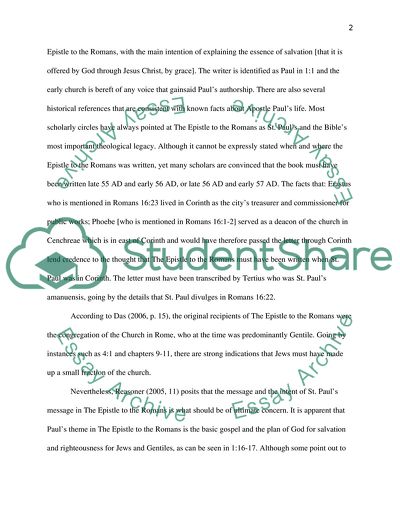Cite this document
(“What is the argument of the Letter to the Romans How far does the Essay”, n.d.)
What is the argument of the Letter to the Romans How far does the Essay. Retrieved from https://studentshare.org/religion-and-theology/1629138-what-is-the-argument-of-the-letter-to-the-romans-how-far-does-the-situation-of-paul-andor-the-roman-church-shed-light-on-its-interpretation
What is the argument of the Letter to the Romans How far does the Essay. Retrieved from https://studentshare.org/religion-and-theology/1629138-what-is-the-argument-of-the-letter-to-the-romans-how-far-does-the-situation-of-paul-andor-the-roman-church-shed-light-on-its-interpretation
(What Is the Argument of the Letter to the Romans How Far Does the Essay)
What Is the Argument of the Letter to the Romans How Far Does the Essay. https://studentshare.org/religion-and-theology/1629138-what-is-the-argument-of-the-letter-to-the-romans-how-far-does-the-situation-of-paul-andor-the-roman-church-shed-light-on-its-interpretation.
What Is the Argument of the Letter to the Romans How Far Does the Essay. https://studentshare.org/religion-and-theology/1629138-what-is-the-argument-of-the-letter-to-the-romans-how-far-does-the-situation-of-paul-andor-the-roman-church-shed-light-on-its-interpretation.
“What Is the Argument of the Letter to the Romans How Far Does the Essay”, n.d. https://studentshare.org/religion-and-theology/1629138-what-is-the-argument-of-the-letter-to-the-romans-how-far-does-the-situation-of-paul-andor-the-roman-church-shed-light-on-its-interpretation.


